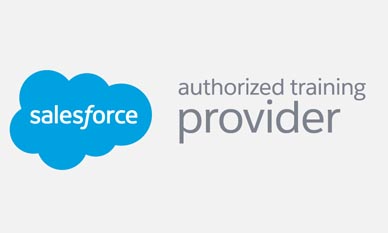
x
Course: Outline
Introduction to Apex
- Overview, including Apex usage scenarios, the development lifecycle, and execution methods
- An introduction to object-oriented programming, classes and objects
Apex Class Construction
- Classes and objects, including passing and returning variables, encapsulation, conditions and logic flow control, loops, and exception handling Testing, Debugging, and Application Lifecycle
Testing, Debugging, and Application Lifecycle
- Debugging scenarios, methods, and tools
- Test classes, unit testing, testing requirements and strategies, and considerations and best practices
- Deployment checklist, preparation steps, and tools
Retrieving and Manipulating Application Data
- Retrieve application data using queries, written in
SOQL or SOSL
- Insert, update, merge, and delete records using Apex data manipulation language (DML)
Apex Triggers
- Introduction to Apex triggers, including when to use a trigger, order of execution, creation and development considerations, and governors and limitations
Audience
Introduction to Object-Oriented Programming using Apex is designed for people who are familiar with the Salesforce application user interface and customizing applications using the Setup menu. It is meant to provide an understanding of object-oriented programming in the context of Apex and the Salesforce platform. No prior programming experience required.
Prerequisites
Course participants should be familiar with the Salesforce User Interface.
What You Will Learn
When you complete this course, you will be able to:
- Describe use cases for Apex
- Write, test, and migrate applications containing debugging statements
- Create Apex classes, Apex triggers, and SOQL queries
- Create, read, update, and delete data using Apex DML
- Describe how governor limits manage shared resources and impact Apex programming
